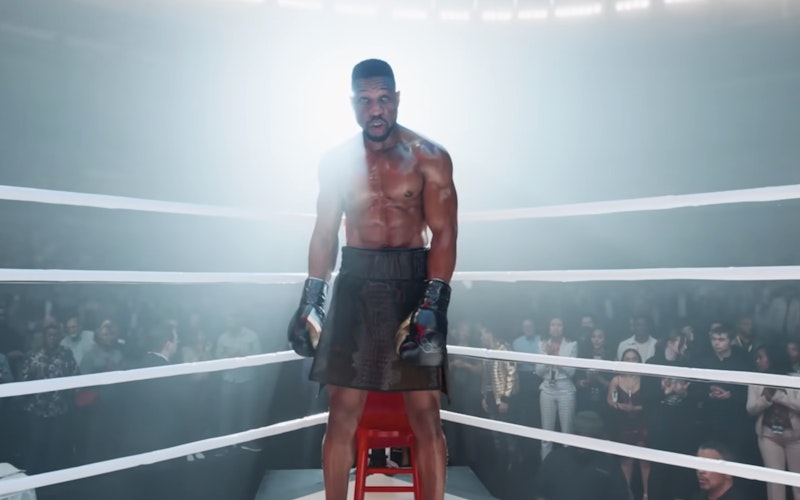
Movies
Fighting for Forgiveness in Creed III
Editor’s note: This post contains spoilers for Creed III.
Like the Apostle Paul in Philippians 3, Adonis Creed (Michael B. Jordan) wants to put the past behind him, strain toward what is ahead, and press on toward the goal of retiring as a champion at the start of Creed III. But is that the prize to be won or has he left something undone?
Adonis’ retirement is interrupted when an old friend, Damian “Dame” Anderson (Jonathan Majors), shows up unannounced outside of his gym. Like a perfect dream that falls apart, Dame’s entrance hints at the beginning of a nightmare for Adonis. His friend’s arrival unearths guilt from the past, which Adonis had long buried.
Dame, on the other hand, is driven by revenge. He observes Adonis living the life that prison robbed him of after the pair were involved in an incident years ago, as teens. He believes Adonis owes him the opportunity to contend for a title. When given that chance, Dame indeed becomes the champ and uses the moment to remind Adonis that he has had to learn to fight on his own: “You think I need you? No. When I got locked up, I needed you. When I came home, I needed you. Look around bro, I’m the champ!”
It’s been said that time heals all wounds, but unfortunately for Adonis, he experiences the contrary. Beneath the dark color palette designed by cinematographer Kramer Morgenthau and Jordan, who also serves as director, Adonis is crippled by the guilt of evading incarceration and living out Damian’s dream as a boxer. Dame’s words haunt him in one ear, even as his wife Bianca (Tessa Thompson) encourages him in the other: “You’ve got to try to forgive yourself so that you can begin to believe that you deserve the life that you have earned.” Bianca urges Adonis to not let Dame destroy everything he has accomplished. Adonis knows only one way to stop Dame and end the guilt. In the ring.
As Adonis and Damian train, Joseph Shirley’s ominous score conveys the difficulty of the retired champion’s task: to overcome the past and reclaim the belt. Flashbacks from the night Dame was arrested overwhelm Adonis, until he finally channels the champ within as the song “Adonis Interlude (The Montage) (with J. Cole)” picks up the tempo. The match itself, an epic showdown in Dodger Stadium, isn’t merely about bragging rights or acclaim. It’s about the right to move on in life—it is, in Adonis’ mind, a chance to prove that he deserves the life that he earned.
Dame’s arrival unearths guilt from the past, which Adonis had long buried.
Watching Creed III, I found the absence of grace jarring in Adonis' motivation. While it is true that he worked hard for accolades, the previous Creed films have shown us that he is also a product of grace. If this is the case, would a victory over Dame truly vanquish his relentless guilt? Would it justify his abandonment of Dame? Accolades are impressive on the surface, but would fail to bring about reconciliation in the brokenness of his relationship. This fight would have to transcend the boxing ring.
As director, Jordan takes creative liberty in his depiction of the final match to explore this transcendence. The fight begins before a sold-out crowd. Then the stadium darkens. Adonis and Dame see no one else. The roaring crowd is muted. Every blow echoes, every breath pulsates. Jail bars cage Adonis inside the ring as he fights for freedom. The camera angle shifts to the first-person point of view to emphasize the dizzying effect of an uppercut blow. The fighters drip with emotion until simultaneous blows pull them back into the lights of the roaring stadium. Creed’s trainer (Wood Harris) urges him to “let go of whatever was and walk into what is.” The power of this face-off is rooted in the past. Once again, like the Apostle Paul, Creed will have to put the past behind him and press on toward the goal. But it is now clear that goal goes far beyond a championship belt.
The Old Testament story of Joseph and his brothers comes to mind. Like Adonis reaching the pinnacle of his career, Joseph rises to the second-highest rank in Egypt. And like Adonis, Joseph endured multiple hardships to get to this position. Interestingly, even Joseph could not move on in life without confronting his past. During a drought, Joseph’s brothers came to Egypt seeking help. Believing Joseph to be dead, they did not recognize their brother. What I find striking is Joseph’s response to seeing his brothers: “. . . Joseph hurried out and looked for a place to weep. He went into his private room and wept there.”
After multiple visits and one-sided family reunions, Joseph “could no longer control himself” and revealed himself to his brothers. Then he “wept so loudly that the Egyptians heard him.” Joseph was not healed with time. The pain of abandonment at the hands of his brothers lingered. Like Adonis squaring off against Dame, Joseph’s confrontation with his brothers began the process of healing. We see evidence of this after the death of Joseph’s father. Although his brothers feared his retaliation, Joseph acknowledged the bigger picture of reconciliation: “You intended to harm me, but God intended it for good to accomplish what is now being done, the saving of many lives.”
While Joseph’s remarkable forgiveness brings healing to a broken family, Dame’s quest for revenge is left unsatisfied in Creed III. Instead, the movie finds its way toward something better. Adonis cannot move past the guilt until he seeks reconciliation. In the aftermath of their fight, Dame understands that Adonis never intended harm, allowing him to forgive both Adonis and himself. “It ain’t on you,” they tell each other. And the healing begins.
Topics: Movies